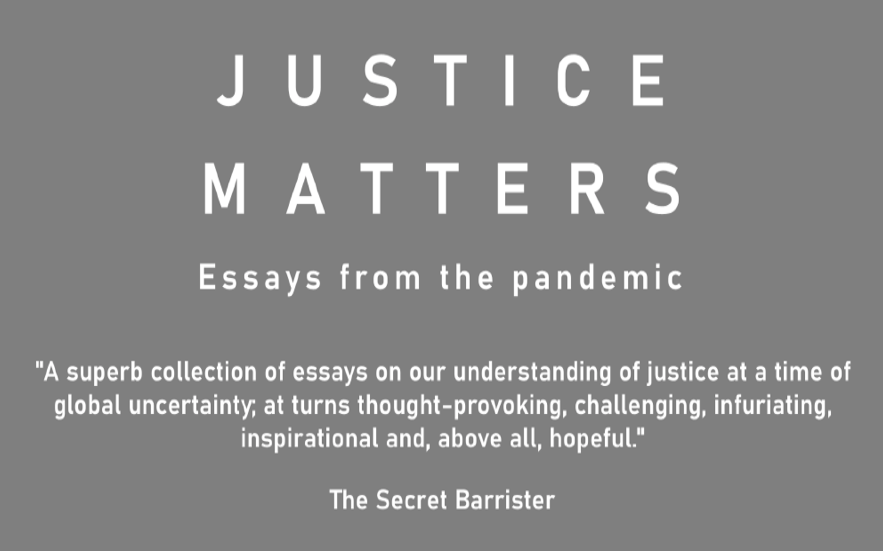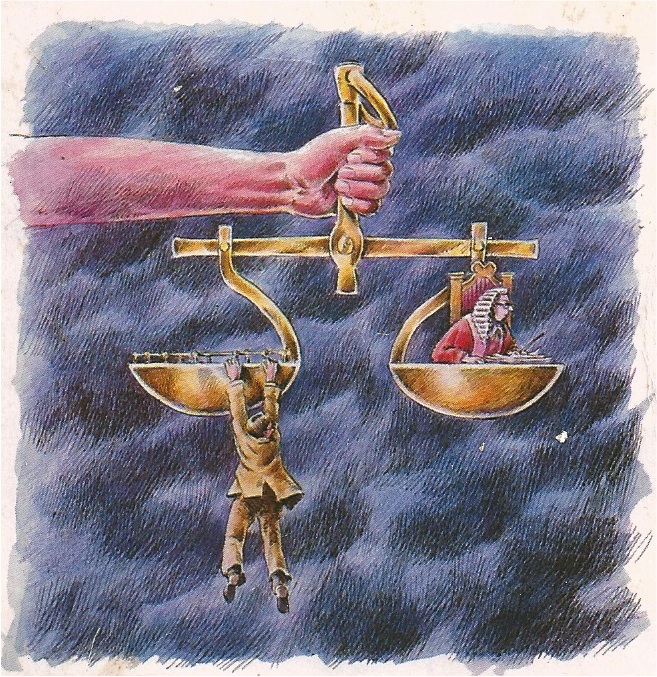Nothing like a pandemic to expose the frailties of our ‘broken’ criminal justice system to the harsh light of scrutiny. Not that readers need Covid-19 to remind them of the shortcomings of our courts. That’s said, beware those with a vested interest – say, politicians or senior members of the judiciary – turning a crisis into an opportunity (e.g, pushing remote justice, limiting trial by jury etc).
Let’s be mindful of deep embedded structural problems getting pushed to the back of the agenda. In short, it’s time we talked about miscarriages of justice. All too often there is a cognitive dissonance at play in the debate over criminal justice reform. Everyone signs up to the notion that it is ‘broken’ but there is never quite enough time to discuss one inevitable consequence: wrongful convictions.
This is an edited version off an essay that features in Justice Matters: essays from the pandemic produced by the Justice Alliance and published by the Legal Action Group. Buy here.
The online launch takes place this evening (September 30, 2020, 6.30pm). More here.
There will be two panel discussions. The first is on housing including Karen Buck MP, Sue James and David Renton. The second will look at the Black Lives Matter including Michael Etienne, Patricia Daley, Queenie Djan and Rhona Friedman.
The evening will be hosted by Fiona Bawdon and there will be some additional video presentations from the book including this essay
The tiny constituency of concern that has built around the issue which used to be front page news back in the ‘bad old days’ (Birmingham Six, Guildford Four etc) is finally making some headway. Two powerful podcasts have been broadcast. Ceri Jackson’s excellent Shreds: Murder in the Dock tells the appalling story of the five men falsely imprisoned for the murder of Lynette White in Cardiff in 1988, and the painful process to get released. Mark Williams-Thomas’s The Detective concerns a current case known as the Three Musketeers, and the extraordinary circumstances they were said to have been involved in terrorism.
Widespread concern on the treatment of miscarriage cases generally led the All-Party Parliamentary Group on Miscarriages of Justice to institute a Westminster Commission into the Criminal Cases Review Commission.
Such momentum as has been built, can’t be lost now.
The most cash-strapped part of our austerity/ pandemic-ravaged criminal justice system is its safety net. The CCRC’s budget last year was £5.2m compared, down from £5.45m the previous year. When the miscarriage of justice watchdog opened its doors in 1997, its budget was £7.5m and it only had to deal with 800 new cases. Now it receives about 1,400 applications a year.
The Birmingham-based group has just one job to do. In her first public pronouncement, the current chair Helen Pitcher last year said that sending cases back to the Court of Appeal was ‘not be the be-all-and-end-all’.
We beg to differ.
As a watchdog, the CCRC could never be accused of being overly gung-ho. In its first 20 years, the commission sent 33 cases a year on average back to the appeal judges; however that number crashed three years ago when it sent a dozen cases back. Last year, just 13 cases were sent back and the year before 19 cases including eight concerning asylum seekers convicted of entering the country with false documentation (we have no issue with the asylum seeker cases but separate them so readers better understand our point).
It is a bleak picture that is made all the more alarming by new revelations as to how the supposedly independent watchdog has allowed itself to be emasculated. At the time of writing a prisoner called Gary Warner is challenging the CCRC’s decision to reject his case on the grounds that that it is not sufficiently free of Ministry of Justice control.
It’s a dismal state of affairs: the CCRC has been treated dismissively by the Court of Appeal, starved of funding by successive governments for over a decade and finally neutered by its ‘sponsor’ department facilitated by its own weak leadership.
If the miscarriage of justice watchdog can’t stand up to the bean-counters at the MoJ, what hope for the wrongly convicted?
If you are the victim of miscarriage of justice, the odds have never been more stacked against you. If by some miracle the CCRC refers your case to the Court of Appeal and its judges overturn your conviction (miracle #2), don’t expect the state to compensate you for those hellish lost years. In the last two years, the MoJ hasn’t paid out a penny as a result of the Coalition government’s 2014 change in the law. Now to be eligible you compensation you have to be able to prove your innocence beyond reasonable doubt – in other words, our lawmakers have reversed the standard burden of proof.
It’s a scandal.
Pandemic or not, we need to talk about miscarriages.







